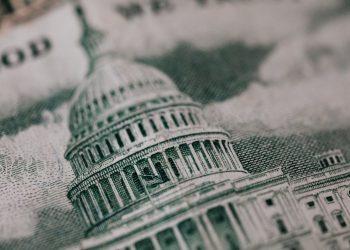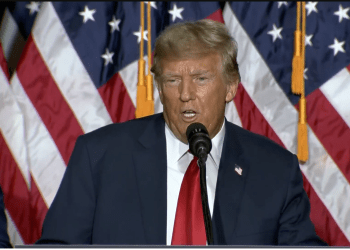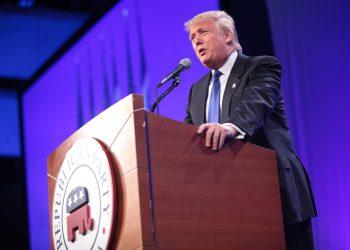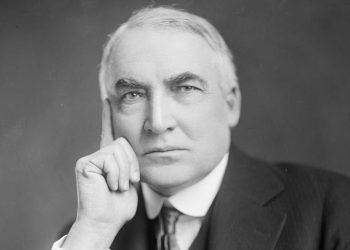The United States trade deficit is close to $1 trillion and this should be a concern, especially for conservatives. Our trade deficit with China is $382 billion and in 2022 the United States imported $538 billion from China. For decades the nation has run large trade deficits as a result of poorly negotiated free trade agreements. Conservatives should be alarmed over the growing trade deficit as it is a sign of our overdependence on foreign nations, but it is also detrimental to our economic and national security.
Since the end of World War II the United States embraced a policy of free trade, which accelerated with globalization. The idea of establishing free trade agreements was favored by both Republicans and Democrats. Nevertheless, it was Republicans and conservatives in the post-war era that abandoned their preference for protectionism to embrace the ideology of free trade. The Republican Party, with its heritage from the Federalists and Whigs, had been the political party that favored tariffs and a policy of protectionism. Both Presidents William McKinley and Calvin Coolidge campaigned with the slogan the “Full Dinner Pail,” which referred to Republican adherence to protective tariffs. This was a conservative philosophy that promoted economic nationalism and the good of the nation, while the alternative, free trade was advocated by progressives such as Presidents Woodrow Wilson and Franklin D. Roosevelt.
The conservative movement became heavily influenced by the libertarian view of trade. In fact, the free market became similar to a “golden calf” as many worshiped at the alter of global free trade. The argument was made that free trade not only benefits the consumer, but in the long run it would help workers and make the nation more prosperous. Free trade advocates even argued that granting China most favored nation status (MFN) would both help the United States economically and democratize China.
It was former President Donald Trump, who along with other conservatives such as Patrick J. Buchanan, started to urge Republicans and conservatives to embrace economic nationalism. President Trump made trade policy a priority within his administration and he correctly noted that the United States was not just losing on trade to China, but with other nations as well.
The promised benefits of free trade fell short, especially for the middle-class. As a result of trade agreements, the trade deficit not only increased drastically, but the manufacturing sector of the economy was hollowed out along with good paying jobs. It is estimated that 3.7 million jobs have been lost to China alone. This led to the decline of the middle-class and many communities, especially in the Midwest. This triggered additional cultural and social problems, such as the opioid crisis, that continues to plague many of these communities.
The COVID-19 pandemic also exposed the nation’s overreliance on foreign goods, especially for pharmaceuticals and other medical equipment. The supply-chain crisis is another example of our overdependence. It is not just cheap consumer goods that have been outsourced, but high technology products such as semiconductors among others that are vital for both our economy and national defense.
President Trump’s administration was the first to seriously address the trade deficit and to rebalance trade. President Trump selected Robert Lighthizer to serve as United States Trade Representative and lead the administration’s trade policy efforts. The Trump administration responded to the trade deficit and the growing threat of China by utilizing tariffs. Tariffs were placed not only on Chinese goods, but also on steel and aluminum. America’s steel industry was especially harmed by cheap subsidized foreign steel flooding the market. The tariffs placed on steel helped to save the industry and its workers.
A shift may be occurring within both the Republican Party and the conservative movement concerning trade policy. The increasing militarism and economic expansion of China has also made many question the benefits of global free trade. Senator Josh Hawley (R-MO) has recently introduced legislation that would revoke China’s MFN status. In response to the millions of manufacturing jobs lost to China, Senator Hawley mentioned the impact it has on American families and communities. “When these jobs and factories disappeared, communities suffered. The unwinding of the social fabric in these forgotten places led to declining rates of marriage and fertility, and rising rates of addiction, divorce, and suicide,” noted Senator Hawley.
Senator Hawley, Senator J.D. Vance (R-OH), among other Republicans have consistently joined with former President Trump on the need to restore manufacturing and to develop a trade policy that places America First. It is time for Republicans and conservatives to rediscover their trade policy heritage and abandon the free trade ideology.
“Actually, there is nothing conservative about free trade. What exactly are these people conserving?” asked Ambassador Lighthizer. This is the question conservatives should be asking. Further, Ambassador Lighthizer explains the danger of trade deficits: “We literally are trading the wealth of our country, the ownership of our equity, debt and property, for Christmas lights and toys, for tennis shoes and garden tools. We are bleeding to death from self-inflicted wounds. So, do massive, consecutive trade deficits matter? Only if you care who owns and controls your country.”
The trade deficit is anything but conservative.
















